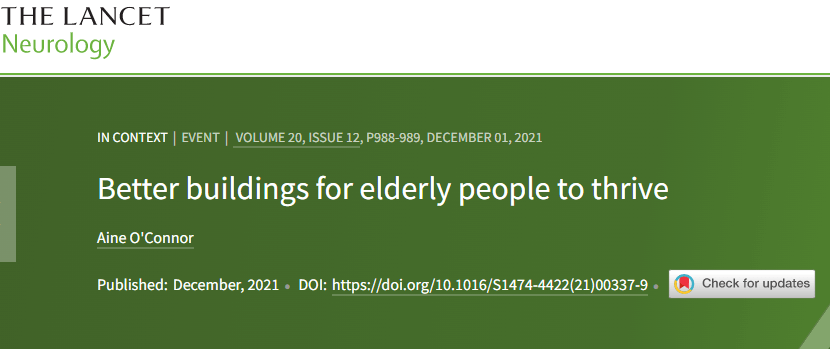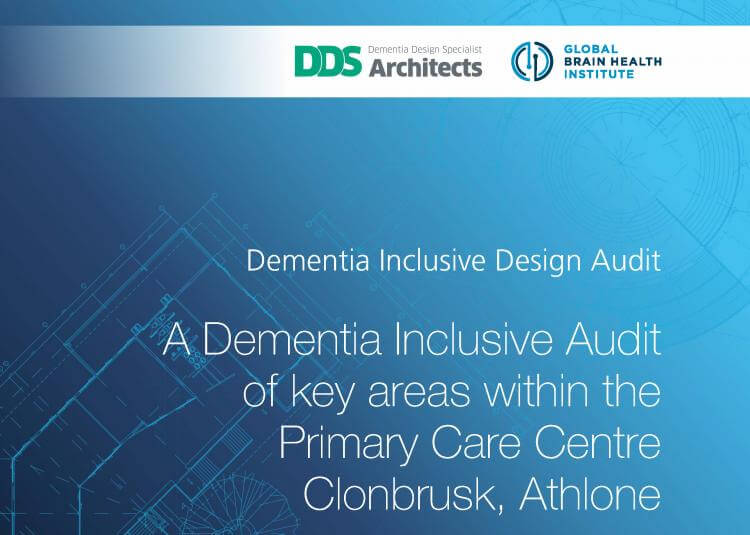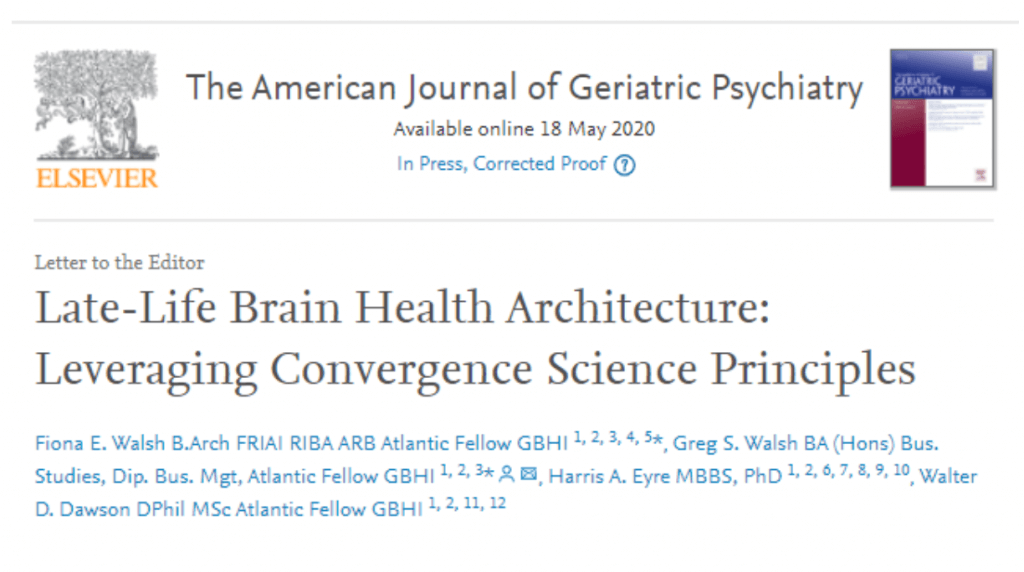What's new
Striving to design inclusive environments in partnership with innovators
Overview
DDS Architects work with clients to develop dementia units, care and nursing homes, towns and health facilities that are more inclusive for people as they age and for people living with physical, cognitive and/or sensory impairments. DDS are committed to designing next generation buildings that are suitable for a changing demographic and supporting brain health.
Better buildings for elderly people to thrive
Feature on inclusive design for older people written by the Lancet Neurology
https://www.thelancet.com/journals/laneur/article/PIIS1474-4422(21)00337-9/fulltext


ADI dementia Design Blog
On World Alzheimer’s Day, Alzheimer’s Disease International calls on governments to embed design in their national dementia responses under the Convention on the Rights of Persons with Disabilities.
https://blog.alz.co.uk/2020/10/16/designing-to-support-dignity-and-independence/#more-1341
The World Alzheimer Report 2020: Design, Dignity, Dementia: dementia-related design and the built environment was published on the 21st September.
Creating Dementia Inclusive Design
Working with Health Service Executive (HSE), Age Friendly Ireland (AFI) and the National Dementia Office (NDO) in Ireland. Dementia and ageing design audit of reference primary care center. .
https://www.gbhi.org/news-publications/dementia-inclusive-design-audit-2020


Brain Health Architecture
Late life Brain Health Architecture: An outcomes based design philosophy to support people remain independent longer while reducing health and care costs.
https://www.sciencedirect.com/science/article/abs/pii/S1064748120303328





